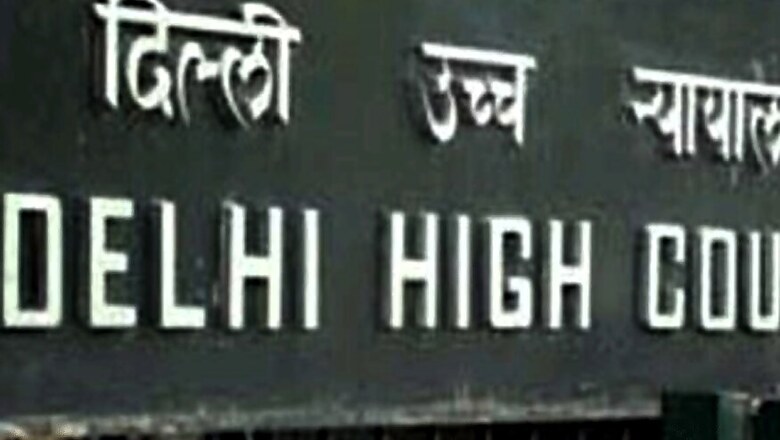
views
New Delhi: The Delhi High Court on Friday decided to hear only urgent matters from March 16 in the wake of coronavirus scare in the country and not insist on personal appearance of parties unless it is indispensable.
The decision was taken at an emergency meeting of the high court's eight-judge Administrative and General Supervision Committee headed by Chief Justice D N Patel and the president and honorary secretary of the Delhi High Court Bar Association (DHCBA) "to contain the spread of pandemic coronavirus".
It was decided that all possible preventive and remedial measures be taken to combat the impending threat of COVID-19, including making available sanitisers be made available in the courts for visitors and staff, "particularly those manning windows where there is constant public dealing".
Subsequent to the meeting, an advisory was issued by the high court in which it said that its functioning from March 16 shall be restricted to urgent matters and "the court master shall give dates in routine matters before the court assembles".
In the meeting, it was also decided that members of the Bar may not issue visitors pass and the high court would not insist on the personal appearance of the parties unless it is indispensable.
The Supreme Court also took a similar decision a few hours before the high court's.
The high court issued a separate advisory for regulating the entry of litigants in all the district courts in the national capital.
In this advisory, it said that courts should not insist on the presence of the parties "unless it is unavoidable" and should take appropriate measures to regulate the entry of litigants and general public in the court complex to avoid crowding.
"Thermal scanners (non-touch) may be procured at the earliest, handlers be trained and they are put to use at the existing checkpoints," the advisory said.
"Till the present situation persists, no adverse/default orders be passed in matters where parties are found to be absent," the advisory further said.
It said that in criminal matters, trial courts should consider "favourably" the request for exemption from the personal appearance of the accused.
"The facility of video conferencing be put to optimum use for the purpose of recording of evidence," the advisory said, adding, "Instead of the physical production of undertrial prisoners (UTPs) from jails, the facility of video conferencing be availed of."
It said in civil matters, wherever possible, service of local commissioners be availed for the purpose of recording of evidence after obtaining the consent of both the parties.
It said that unnecessary crowding in the lock-up in the court premises be curtailed and appropriate steps are taken in this regard in consultation with the jail authorities.
The advisory said that judges in-charge of the trial courts shall ensure that medical dispensaries in the court complex are "well equipped to tackle the present emergent situation".
It said that sanitizers be made available in the courts for visitors, staff "particularly those manning windows where there is constant public dealing".
"Housekeeping agency/staff be asked to ensure that highest level of hygiene is maintained in the court complex and disinfectants are sprayed on a regular basis," it said, adding a dedicated team comprising of senior judicial officers and others be constituted in each district court complexes for taking stock of the situation on a day-to-day basis.
"All the possible preventive and remedial measures be taken to combat the impending threat of COVID-19," it said, adding, "No function/election or any other event be permitted to be held/conducted till further orders".
The advisory said that the district court bar association may also issue necessary directions to ensure that there is no crowding in the court complexes.
It said that judge in-charge of the mediation centre of all the district court complexes would also ensure that mediation proceedings are held only in cases that are of urgent nature.
















Comments
0 comment